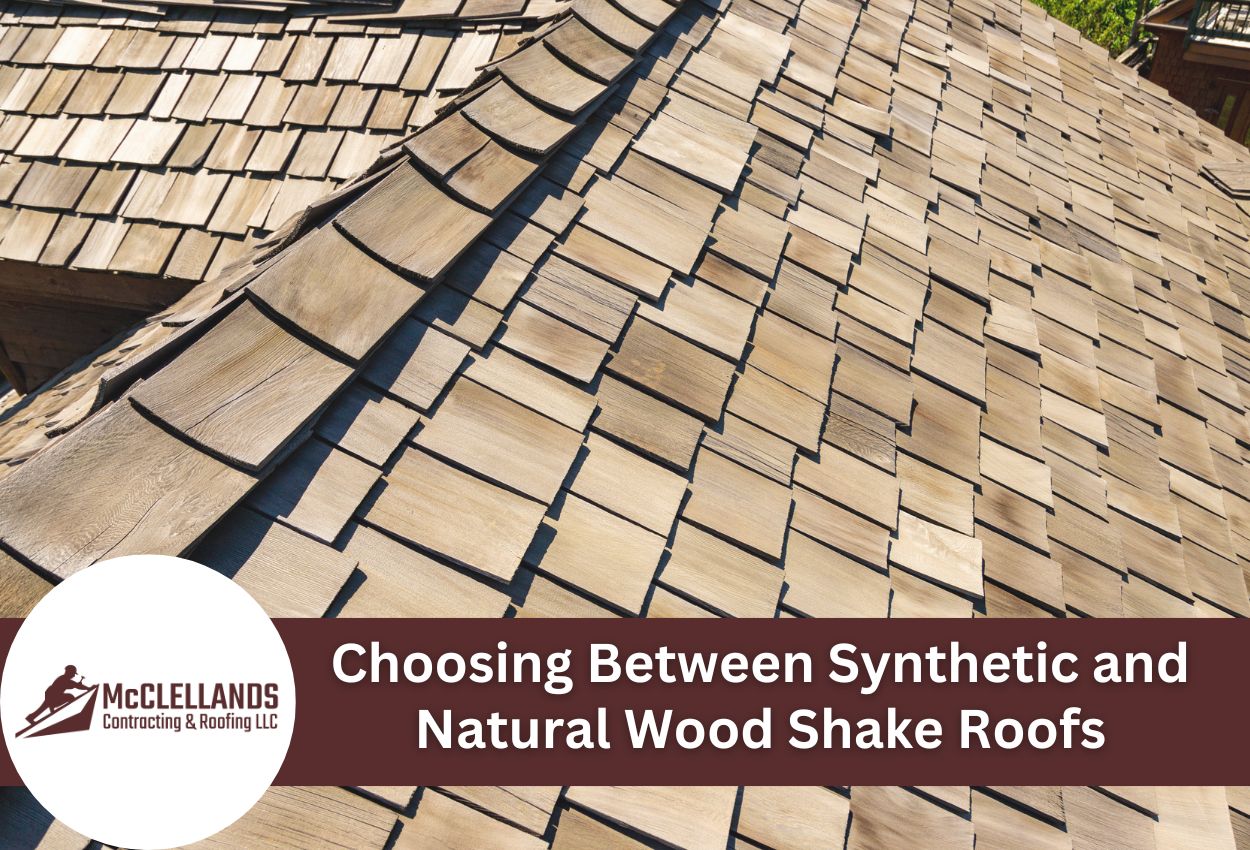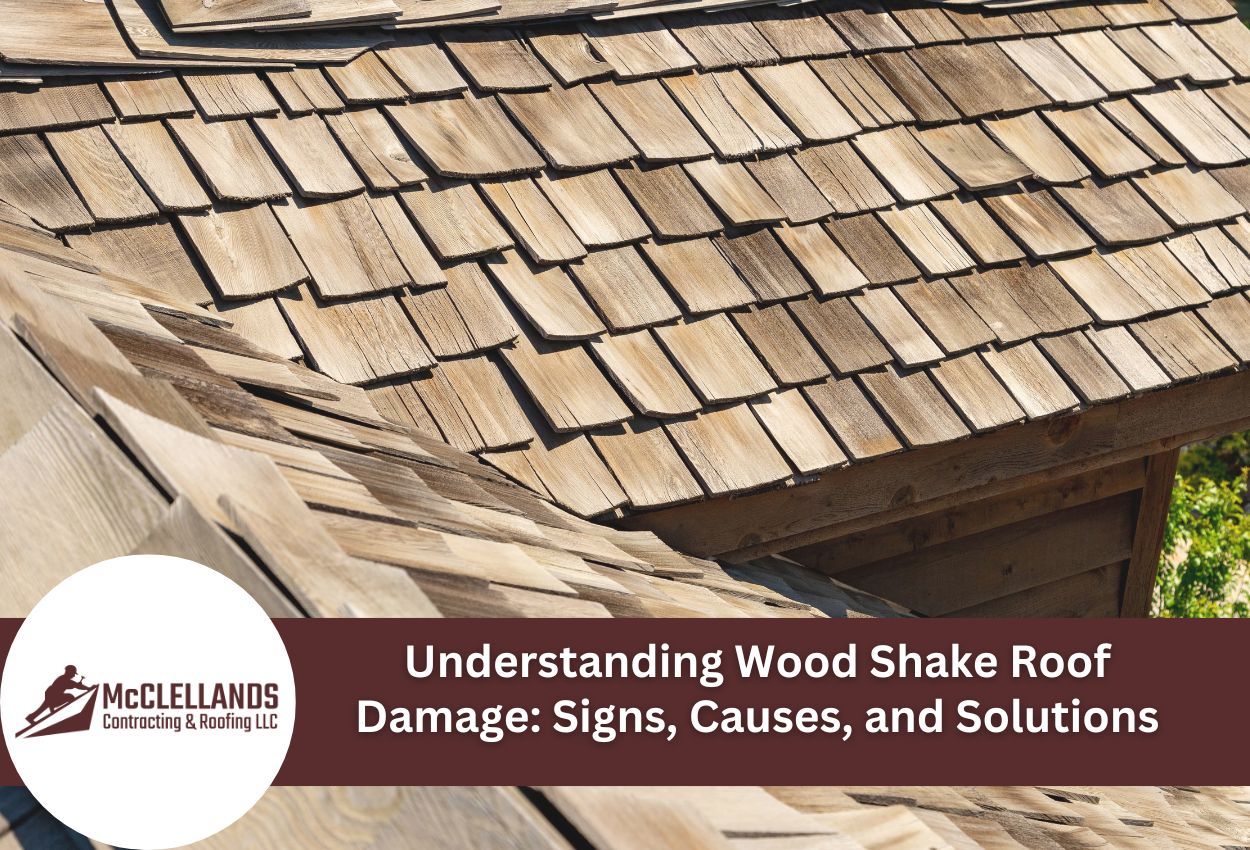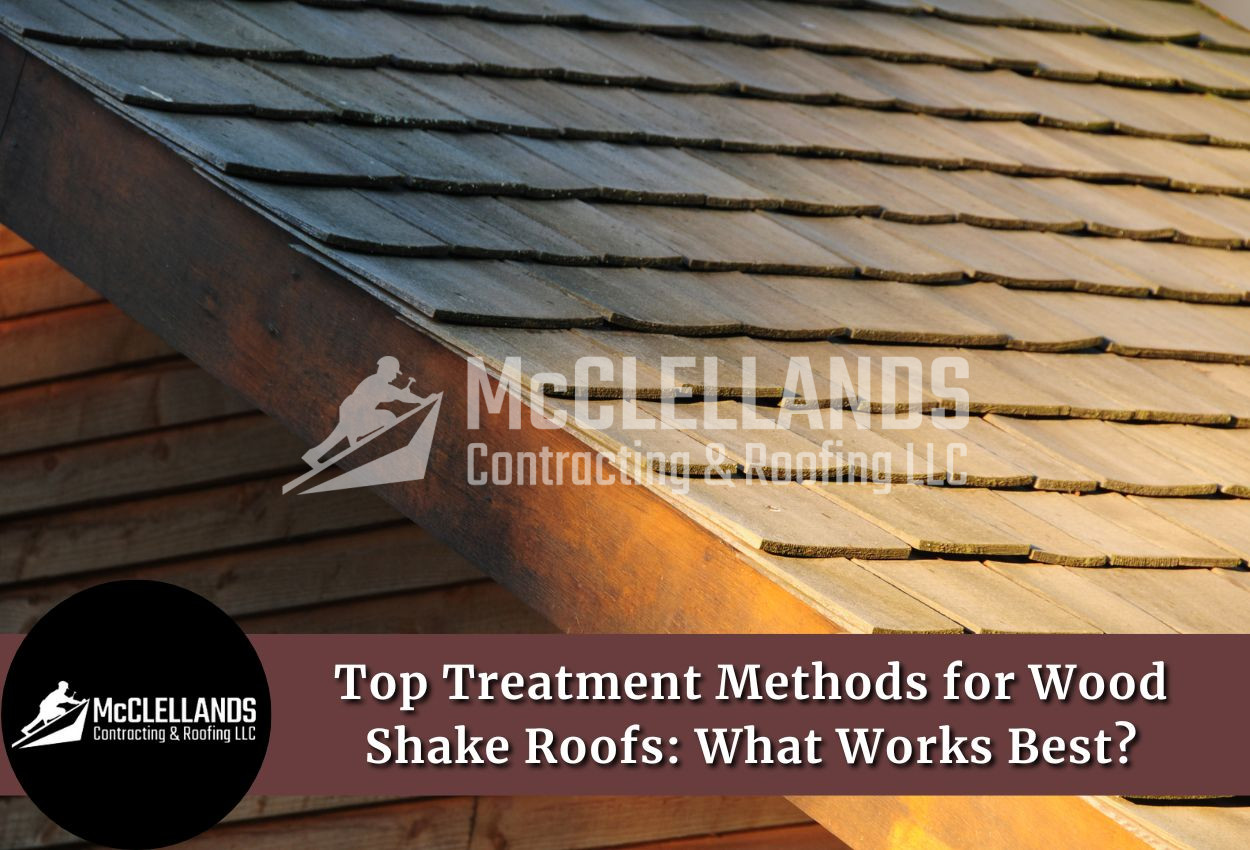Wood shake roofing systems deliver timeless charm and character to Pittsburgh homes, but homeowners increasingly face an important decision between synthetic wood shakes and natural cedar ones. Both options offer distinctive benefits that deserve careful consideration, especially given Western Pennsylvania's seasonal weather conditions.
Natural wood shake has long been valued for its authentic appearance and traditional craftsmanship. Each cedar shake features unique grain patterns and develops a distinguished weathered appearance over time. Meanwhile, composite shake alternatives have evolved dramatically, now mimicking natural wood with remarkable accuracy while addressing many downsides of traditional wood roofing materials.
The decision extends beyond appearance, encompassing practical considerations like fire resistance, insect resistance, maintenance requirements, and expected lifespan. Long-lasting shake roof options vary widely in their performance and warranty coverage, creating important distinctions for discerning homeowners.
With regional weather patterns becoming increasingly unpredictable, understanding how wood shake roof alternatives perform specifically in Pittsburgh conditions becomes important for making an investment that delivers both aesthetic satisfaction and long-term performance.
The Authentic Beauty of Natural Cedar Shake Roofs
Natural cedar shakes create an unmistakable charm that has adorned Pittsburgh homes for generations. The rich, warm tones and distinctive texture of genuine wood shakes provide a depth and character that immediately enhances curb appeal. Unlike alternative options that are manufactured in a factory, each cedar shake features natural variations in grain, thickness, and color that create a truly one-of-a-kind roof.
As cedar ages, it weathers to a distinguished silvery-gray patina that many Pittsburgh homeowners find incredibly appealing. This natural aging process adds character and history to homes, particularly in established neighborhoods where traditional architecture remains highly valued.
Cedar shake roofs particularly complement Craftsman, Tudor, Colonial, and Victorian homes found throughout Pittsburgh's diverse neighborhoods. The authentic craftsmanship involved in proper cedar shake installation represents a connection to traditional building methods that many homeowners appreciate. Skilled Pittsburgh roofers with experience in natural wood shake installation understand the precise techniques required to maximize both beauty and performance.
Beyond appearances, natural cedar contains oils that provide natural resistance to insects and offer some degree of moisture protection. The dimensional thickness of cedar shakes also creates natural insulation properties that can benefit Pittsburgh homes during both winter and summer temperature extremes.
Modern Innovation: How Synthetic Wood Shake Has Evolved
The synthetic wood shake market has undergone a remarkable transformation over the past decade, with manufacturers developing products that closely rival the beauty of natural cedar. Today's high-quality synthetic shake options feature authentic-looking grain patterns, dimensional variations in thickness, and color blending that make them nearly indistinguishable from natural wood, even when inspected closely.
Advanced polymer formulas have dramatically improved the appearance and performance of synthetic wood shake. Many products now incorporate recycled materials, making them an environmentally responsible choice for Pittsburgh homeowners. These innovations have addressed previous concerns about artificial-looking finishes while maintaining the durability that gives synthetic options an advantage.
The durability of synthetic shakes has become particularly relevant for Pittsburgh's varied climate conditions. Modern synthetic materials resist expansion and contraction during temperature swings from sub-zero winters to humid 90-degree summers. Polymer-based products offer superior resistance to ice damage during freeze-thaw cycles, while recycled composite materials provide excellent performance during heavy rain and snowfall.
Many synthetic wood roofing products now come with enhanced UV protection as well to prevent fading despite Pittsburgh's sunny summer days. The most advanced materials maintain their appearance for decades with minimal maintenance requirements. This represents a significant advantage over natural cedar shake, which requires regular maintenance to preserve its appearance and performance in Western Pennsylvania's challenging climate.
Weather Resistance: Comparing Performance in Pittsburgh's Climate
Pittsburgh's local climate presents unique challenges for roofing materials. With annual freeze-thaw cycles, heavy snow accumulation, summer storms, and high humidity, your roof's weather resistance becomes a critical factor when choosing between natural and synthetic wood shake options.
Natural cedar shake, while beautiful, can struggle with Pittsburgh's moisture. Prolonged exposure to rain and snow can lead to warping, splitting, and eventual rot if not properly maintained. Cedar's natural oils provide initial protection, but these diminish over time, requiring treatments every 3 to 5 years to maintain weather resistance.
Meanwhile, synthetic wood shake alternatives excel in our local weather patterns. These engineered materials resist moisture absorption, preventing the swelling and contraction that damages natural wood during freeze-thaw cycles. Many synthetic products also maintain their structural integrity even after decades of exposure to Pittsburgh's seasonal extremes.
For Pittsburgh homeowners, ice dam formation presents a particular concern. Synthetic shakes typically offer superior performance during winter freeze-thaw cycles, with some products featuring enhanced grip surfaces that help shed snow before damaging ice dams can form. During summer storms, higher-grade synthetic materials provide excellent impact resistance against hail and wind-blown debris, often carrying Class 4 impact ratings and wind warranties exceeding 110 mph, which is important for our increasingly unpredictable weather patterns.
Maintenance Requirements and Long-Term Care Differences
The maintenance needs of your wood shake roof can significantly impact your long-term satisfaction and overall ownership costs. Natural wood shakes demand a comprehensive maintenance schedule that’s performed properly in Pittsburgh's climate conditions. Homeowners should plan for professional inspections every 1 to 2 years, with more frequent checks after severe weather events common to Western Pennsylvania.
Cedar shake maintenance typically includes clearing debris from valleys and gutters quarterly, treating the wood with preservatives every 3 to 5 years, and addressing moss or algae growth promptly. In Pittsburgh's humid climate, untreated cedar becomes particularly vulnerable to moisture-related deterioration. Local homeowners should budget for occasional shake replacements as individual pieces crack, cup, or split.
Synthetic wood shake alternatives offer dramatically reduced maintenance requirements. While not entirely maintenance-free, these materials eliminate the need for preservative treatments, resist biological growth, and rarely require individual piece replacement. Homeowners typically only need to perform basic roof cleaning to remove debris and ensure water is shedding from the roof properly. Many Pittsburgh roofers recommend simple annual inspections for synthetic shake roofs rather than the comprehensive maintenance program required for natural cedar.
For busy homeowners or those with multi-story homes where it can be challenging to access the roof, the minimal upkeep of synthetic options represents a significant advantage. The predictable performance and consistent appearance of quality composite products provide peace of mind through Western Pennsylvania's seasonal changes without the ongoing attention traditional wood shake demands.
Environmental Considerations and Sustainability Factors
When evaluating wood shake roof options for your Pittsburgh home, environmental impact deserves careful consideration. Natural cedar shake roofing materials come from harvested trees, primarily old-growth Western Red Cedar. While wood is a renewable resource, the harvesting process impacts forest ecosystems, and traditional logging operations generate a significant carbon footprint through machinery emissions and transportation from western forests to Pennsylvania.
Synthetic wood shake alternatives present a complex environmental profile. Manufacturing processes require petroleum-based materials and energy-intensive production, initially creating a larger carbon footprint than it would to harvest cedar. However, the extended lifespan of synthetic materials — often 40+ years compared to cedar's 15 to 30 years — spreads this environmental impact over a longer period, potentially reducing lifetime environmental costs.
Lifespan considerations also reveal additional differences. Cedar shakes are fully biodegradable and can be composted or recycled as mulch when replaced. Synthetic materials typically cannot be recycled and may remain in landfills indefinitely. However, the extended replacement cycle means less frequent disposal.
From a home performance perspective, both materials offer insulation benefits. Cedar provides natural thermal resistance, while advanced synthetic options often incorporate reflective properties that enhance energy efficiency. Pittsburgh homeowners seeking to minimize environmental impact should consider locally sourced cedar options when available or synthetic products containing recycled content that offer maximum durability for fewer lifetime replacements.
Making Your Final Decision: Beyond Materials to Installation Expertise
Choosing between synthetic and natural wood shake involves careful material comparison, as even the highest quality product requires proper installation to perform optimally in Pittsburgh's climate. Professional installation becomes the critical factor that determines whether your roof will deliver its promised lifespan and performance benefits.
A quality roofing contractor brings specialized knowledge about how different shake products interact with Pittsburgh's weather. For cedar shake installation, professional contractors understand the precise spacing needed to accommodate wood's natural expansion and contraction during seasonal humidity changes. With synthetic wood roofing materials, professionals ensure proper attachment methods that maximize wind resistance and accommodate the material's unique properties.
When evaluating contractors, look beyond general roofing experience to find teams with specific expertise in your chosen material. Request examples of previous wood or composite shake roof installations they've completed in the Pittsburgh area. Reputable contractors will openly discuss the warranty coverage for both materials and workmanship, helping you understand the protection you're receiving.
Remember that long-term value extends beyond initial cost considerations. The most economical choice often combines reasonable installation costs with materials that deliver appropriate durability for your specific home situation. Pittsburgh homeowners should weigh installation quality, material performance, warranty coverage, and maintenance requirements when determining which wood shake roof alternative provides the best lifetime value for their unique needs.
Make The Right Choice With The Help of McClellands Contracting and Roofing LLC
Whether you're considering the traditional charm of natural wood shake or the modern resilience of synthetic alternatives, McClellands Contracting and Roofing LLC has the expertise to guide you through your options. Our experienced team ensures your roof is not only aesthetically pleasing but also durable and sustainable. Don't compromise on quality, trust us to enhance the beauty and functionality of your home.
Ready to make the best roofing choice for your home? Call McClellands Contracting and Roofing LLC now at (412) 353-5660 to discuss your options and schedule a consultation. Our expert team is here to help you achieve the perfect balance of style, durability, and cost-effectiveness.



